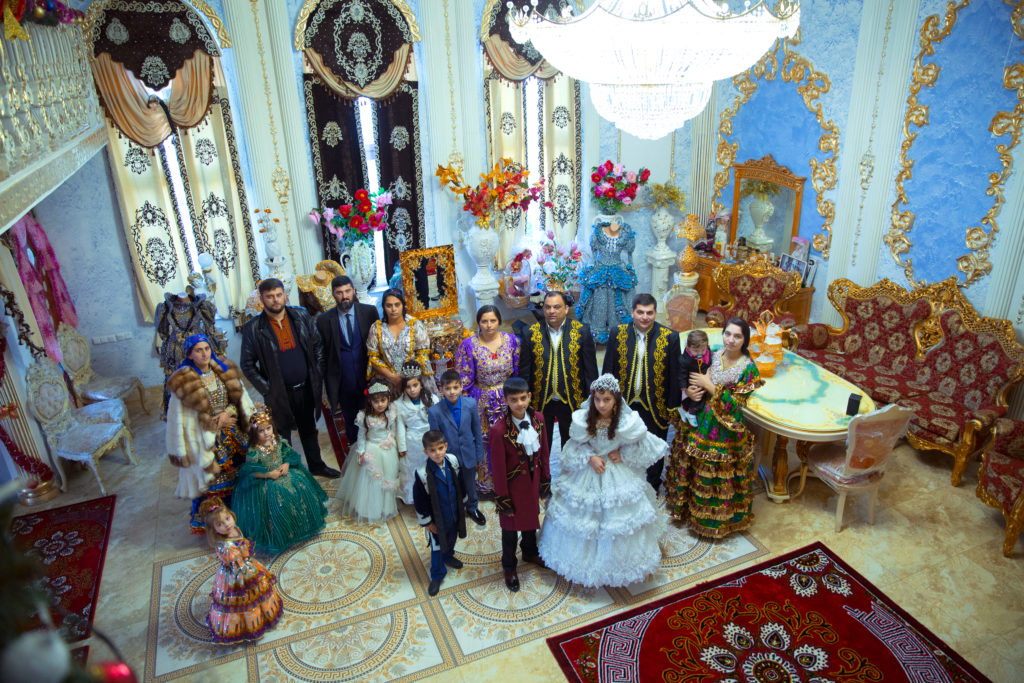Just Like You is a joint project of Real Stories Production and the United Nations Development Programme in Ukraine financially supported by the Ministry of Foreign Affairs of Denmark
HAPPY ROMA
David Bogar — Founder of the public organization Romano Bakhtalo Drom and the charitable foundation The Romani of Vynohradivshchyna.
- The Constitution of Ukraine guarantees to all citizens, irrespective of their national origin, equal political, social, economic and cultural rights and freedoms, and supports the development of national self-awareness and self-expression.
- In 2013, the National Roma Strategy was adopted to create the right conditions for the protection and integration of the Roma minority in Ukrainian society.
My father was a baron and defended the Romani. If there was a problem, they came to him, he hired lawyers and paid for legal proceedings.
We live in the village of Pidvinohradiv, and our relations with Ukrainians have been very difficult. It used to be that a Roma would buy a house next to the house of a Ukrainian, and wouldn’t be able to even step close to it. The community would gather, block the road, shout for him to go live somewhere else because they didn’t need such neighbors.
But for the last 6 years, since our Romano Bakhtalo Drom legal center started operating, the local authorities have been treating us better. Now we can engage in a dialogue as equals.
Romano Bakhtalo Drom appeared in 2014. The main issue we are dealing with is the issuing of passports. Just think of it, Romani in their twenties and thirties do not have a passport. A 37-year-old woman recently asked to help her get a passport. I asked, “You didn’t need it for 37 years, what has changed?” She said she wants to go to Europe for work. Formal employment is usually the main reason.
Our organization helps with employment as well. It started with one family coming to us: 10 people, both children and adults. They asked if we could find them any work. It was new to us, but we managed. We found them jobs in the greenhouses. And after that, the “Roma radio” started working with more people coming and asking to help with finding jobs. This year we assisted in hiring about 100 people. 70 of them remain in Transcarpathia, working in the greenhouses, and another 30 are now working at a canning factory in Nizhyn.
Often people who come to us do not believe that it is at all possible for them to get passports. If you could see their eyes! They have no hope of becoming full citizens. Every Roma went through it at least once. You go to the passport authority where they send you to the Registry Office, but the Office doesn’t have your birth record, so they say “Go to the village council.” And the village council has no authority to issue passports. There is no legal basis since most Roma do not have birth certificates. Traditionally women used to give birth at home, and no one ever registered their children.
Now, of course, more and more women are giving birth in hospitals, and I consider this an achievement. Just like the fact that Romani, overall, are now beginning to seek medical treatment instead of just using traditional medicine. Again, traditionally, when someone got ill, he went to the senior women in the camp, and they knew what to put on the wound or what draught to prepare.
One of the most important traditions is women’s clothing. Our women only wear traditional clothes. There are clothes for daily use and clothes for the holidays. Each type has its distinct style, honed for generations. Of course, it can be adjusted, with something added or modified, but the overall style remains the same. They usually wear dresses or blouses with skirts, all embroidered in a variety of styles. It is a historical tradition that has developed over several centuries, and to lose it would mean to lose identity.
We are planning to open a school soon. We have been asking for support from the state for several years, but so far it has been in vain. We have only 5000 people in the settlement, half of them are Romani. There are about 500 children of preschool and school age. Presently, some children go to a school outside the settlement, but it too far away, and, therefore, we can only send boys there. We want this situation to change and to have both a kindergarten and a school here.
Recently we’ve written a book about the lives of Romani Bakhtole Rumintse, which translates as “Happy Roma.” We deliberately picked this name for the book. Ukrainians often think that we are unhappy, complaining about our lives, living in poor conditions. In the book, we have collected many stories about our camp, which has been around for 300 years: our traditions, culture, clothing, household items.












